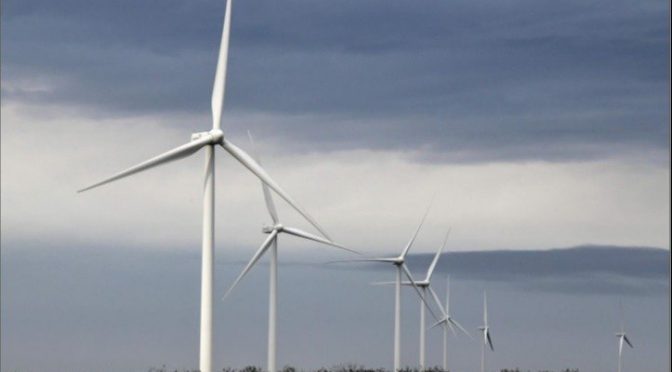One of the fundamental pillars for the growth of wind energy in our country is the implementation of clear and consistent policies that encourage investment and expansion of wind farms (EFE/Archive/Filip Singer)
Migration towards more sustainable energy sources is gaining momentum in Latin America and Argentina is emerging as one of the leaders in this process. According to a report by Global Energy Monitor, Argentina ranks fourth in renewable energy production in the region, with a total of 4.7 gigawatts (GW) coming from wind and solar installations. The Latin American ranking is led by Brazil with 27 GW, followed by Mexico with 20 GW and Chile with 10 GW.
In the midst of a global panorama marked by the urgency of addressing climate change and moving towards more sustainable energy sources, wind energy is a promising option for countries like Argentina, which have significant wind potential but have not yet reached its maximum use. . .
One of the fundamental pillars for the growth of wind energy in our country is the implementation of clear and consistent policies that encourage the investment and expansion of wind farms. This implies establishing stable and transparent regulatory frameworks that provide legal security to investors and promote the competitiveness of the sector. Furthermore, it is crucial to develop accessible financing mechanisms for wind projects, encouraging private sector participation and promoting public-private partnerships that drive infrastructure development.
The lack of an adequate transmission network has historically been an obstacle to the development of wind farms in Argentina, limiting their ability to integrate into the national electrical grid.
Another crucial aspect is the strengthening of electrical transmission infrastructure, especially in regions with the greatest wind potential. The lack of an adequate transmission network has historically been an obstacle to the development of wind farms in Argentina, limiting their ability to integrate into the national electrical grid. Significant investments are needed in the expansion and modernization of transmission infrastructure, as well as in the implementation of smart technologies that facilitate the integration of large-scale wind energy.
Likewise, contribute to promoting research and development in the field of wind energy, promoting technological innovation and the adaptation of advanced solutions to the specific conditions of our country. This includes the development of energy storage technologies that mitigate the intermittency of wind energy and ensure a stable and reliable energy supply.
Last but not least, there is a need to promote public awareness and education about the benefits of wind energy and the fundamental role it plays in the transition to a more sustainable and environmentally friendly energy system. This involves developing training and awareness programs aimed at local communities, government authorities and key actors in the energy sector, in order to promote a culture of responsible use of natural resources and greater social acceptance of wind projects.
Argentina’s energy challenge requires continuous and collaborative commitment from all sectors of society to achieve significant and lasting changes. This is essential not only to capitalize on the potential of wind energy and other renewable energy sources, but also their impact on the country’s environmental sustainability, energy independence and economic development. Establishing an appropriate regulatory framework, improving electrical infrastructure, encouraging technological innovation and promoting public awareness are essential steps towards a more sustainable and prosperous future for future generations.
This transition not only implies changes in the way we produce and consume energy, but also in how we conceive our role in preserving the planet and building a more equitable and resilient society. The question we must ask ourselves is: will we be mere spectators or agents of change? Driving action and collaboration in this process is essential to ensure a better future for all. We can do it.


